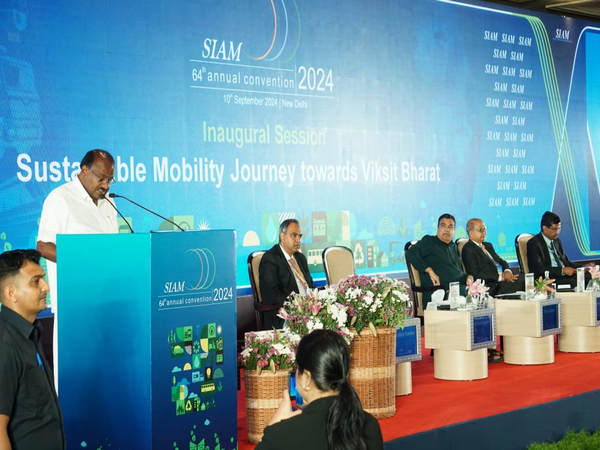Indian Automobile Industry's Role in Economic Growth and Sustainable Mobility
Union Minister HD Kumaraswamy acknowledged the Indian automobile industry's essential contribution to economic growth and sustainability during the 64th SIAM Annual Convention. Highlighting its significant GDP contribution and employment opportunities, Kumaraswamy emphasized the sector's resilience amid global challenges and its progress towards sustainable mobility and EV innovation under government schemes.

- Country:
- India
Union Minister HD Kumaraswamy on Tuesday emphasized the pivotal role of the Indian automobile industry in driving the nation's economic growth. Speaking at the 64th SIAM Annual Convention titled Sustainable Mobility Journey towards Viksit Bharat, Kumaraswamy stated that with a turnover of Rs 20 lakh crore, the sector contributes about 6.8 percent to the GDP and constitutes around 40 percent of India's manufacturing sector. He also noted that the industry employs over 30 million people, underlining its critical importance in the industrial landscape.
Despite facing global supply chain disruptions and challenges from the pandemic over the past two to three years, the automobile industry has demonstrated remarkable resilience. All segments of the sector—including commercial and passenger vehicles, three-wheelers, two-wheelers, and auto components—have shown strong recovery over the past two years, reinforcing India's status as an emerging automobile production hub, Kumaraswamy highlighted. He reiterated India's commitment to sustainable growth, referencing Prime Minister Narendra Modi's 'Panchamrit' roadmap presented at the COP26 in Glasgow.
The 'Panchamrit' roadmap underscores India's aspiration to achieve net-zero carbon emissions by 2070 and to reduce carbon emissions by 1 billion tonnes by 2030. The Government of India has been proactively promoting sustainable mobility through various initiatives. The Ministry of Heavy Industries (MHI) has supported this transition with schemes such as the Production Linked Incentive (PLI) for Automobile and Auto Components, and the PLI for Advanced Cell Chemistry (ACC). Kumaraswamy also noted that the government has introduced a scheme to incentivize the manufacturing of electric passenger cars, featuring a concessional import duty of 15 percent, significantly lower than the existing rates of 70 or 100 percent, which encourages innovation and competition in the EV market.
Highlighting the growth in electric vehicle penetration, Kumaraswamy pointed out a 90 percent increase in electric passenger vehicles and a 30 percent rise in electric two-wheelers in 2023-24, further showcasing the sector's promising future. (ANI)
(With inputs from agencies.)










